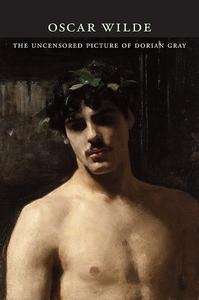The Uncensored Picture of Dorian Gray

Editorial Belknap Press
Fecha de edición agosto 2012 · Edición nº 1
Idioma inglés
EAN 9780674066311
272 páginas
Libro
encuadernado en tapa blanda
Resumen del libro
Over 120 years after Oscar Wilde submitted The Picture of Dorian Gray for publication, the uncensored version of his novel appears here for the first time in a paperback edition. This volume restores material, including instances of graphic homosexual content, removed by the novel's first editor, who feared it would be offensive to Victorians.
More than 120 years after Oscar Wilde submitted The Picture of Dorian Gray for publication in Lippincott's Monthly Magazine, the uncensored version of his novel appears here for the first time in a paperback edition. This volume restores all of the material removed by the novel's first editor.
Upon receipt of the typescript, Wilde's editor panicked at what he saw. Contained within its pages was material he feared readers would find offensive especially instances of graphic homosexual content. He proceeded to go through the typescript with his pencil, cleaning it up until he made it acceptable to the most fastidious taste. Wilde did not see these changes until his novel appeared in print. Wilde's editor's concern was well placed. Even in its redacted form, the novel caused public outcry. The British press condemned it as vulgar, unclean, poisonous, discreditable, and a sham. When Wilde later enlarged the novel for publication in book form, he responded to his critics by further toning down its immoral elements.
Wilde famously said that The Picture of Dorian Gray contains much of me : Basil Hallward is what I think I am, Lord Henry what the world thinks me, and Dorian what I would like to be in other ages, perhaps. Wilde's comment suggests a backward glance to a Greek or Dorian Age, but also a forward-looking view to a more permissive time than his own repressive Victorian era. By implication, Wilde would have preferred we read today the uncensored version of his novel.
Nicholas Frankel is Associate Professor of English at Virginia Commonwealth University.
Biografía del autor
Novelista, poeta, crítico literario y autor teatral de origen irlandés, gran exponente del esteticismo, Oscar Wilde conoció el éxito desde sus comienzos gracias al ingenio punzante y epigramático que derrochó en sus obras, dedicadas casi siempre a fustigar a sus contemporáneos. Defensor del arte por el arte, sus relatos repletos de diálogos vivos y cargados de ironía provocaron feroces críticas de los sectores conservadores, que se acentuaron cuando Wilde fue acusado y condenado por su homosexualidad, lo que originó el declive de su carrera literaria y de su vida personal. Entre sus obras destacan las cuatro comedias teatrales El abanico de lady Windermere (1892), Una mujer sin importancia (1893), Un marido ideal (1895) y La importancia de llamarse Ernesto (1895), El fantasma de Canterville o El retrato de Dorian Gray, su única novela.








